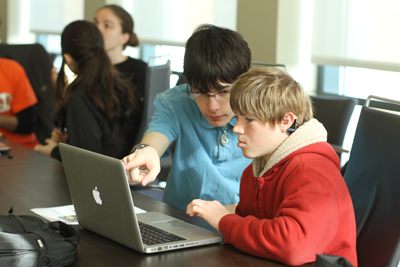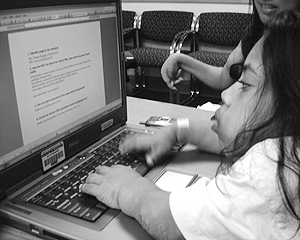Video Content and Universal Design (AccessComputing News Feb 2009)
It is easier than ever to produce and distribute video content via DVD or the web. As an educator, how do you ensure that the videos you create are accessible to all students?
It is easier than ever to produce and distribute video content via DVD or the web. As an educator, how do you ensure that the videos you create are accessible to all students?
The Pathways to Success for Students with Invisible Disabilities CBI took place in Putney, Vermont. Landmark College Institute for Research and Training and AccessComputing worked together to organize the event. Its overall purpose was to promote cross-campus collaboration to increase the number of students with learning disabilities, attention deficit hyperactivity disorder (ADHD), and autism spectrum disorders (ASD) successfully pursuing higher degrees and careers in computing fields.

AccessComputing staff and participants developed an Accessibility Checklist to guide faculty and administrators in making their computing departments more accessible. The checklist is based on the concept of universal design, defined by Ron Mace of the Center for Universal Design as, "the design of products and environments to be usable by all people, to the greatest extent possible, without the need for adaptation or specialized design."

Reporting data as of February 2011.
Students with disabilities:
Educators & employers:
Led by the Department of Computer Science & Engineering and DO-IT (Disabilities, Opportunities, Internetworking, and Technology) at the University of Washington, AccessComputing is supported by the National Science Foundation (Grant No. CNS-0540615, CNS-0837508, and CNS-1042260). Any opinions, findings, and conclusions or recommendations expressed in this material are those of the authors and do not necessarily reflect the views of the National Science Foundation.
The UW hosted the AccessComputing Leadership Institute in Seattle in fall 2008. The event brought together more than twenty-five leaders from around the country to broaden participation in computing for people with disabilities. The goals of the institute were threefold:
Since February 2006, AccessComputing has contributed funds to support computing-related activities, training, and experiential learning opportunities nationwide. Individuals can seek funding to support: